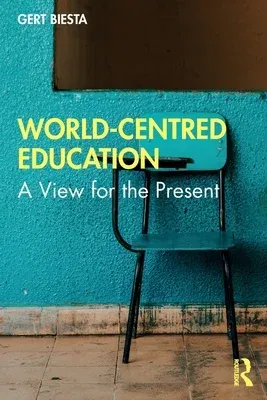This book makes an intervention in a long-standing discussion by arguing
that education should be world-centred rather than child-centred or
curriculum-centred. This is not just because education should provide
students with the knowledge and skills to act effectively in the world,
but is first and foremost because the world is the place where our
existence as human beings takes place.
In the seven chapters in this book Gert Biesta explores in detail what
an existential orientation to education entails and why this should be
an urgent concern for education today. He highlights the importance of
teaching, not understood as the transmission of knowledge and skills but
as an act of (re)directing the attention of students to the world, so
that they may encounter what the world is asking from them. The book
thus shows why teaching matters for education. It also highlights the
unique position of the school as the place where the new generation is
given the time to meet the world and meet themselves in relation to the
world. The extent to which society is still willing to make this time
available, is an important indicator of its democratic quality.
This important text demonstrates, not only to academics, but also to
students, teachers, school administrators, and teacher educators, the
urgency of a world-centred orientation for education today.

